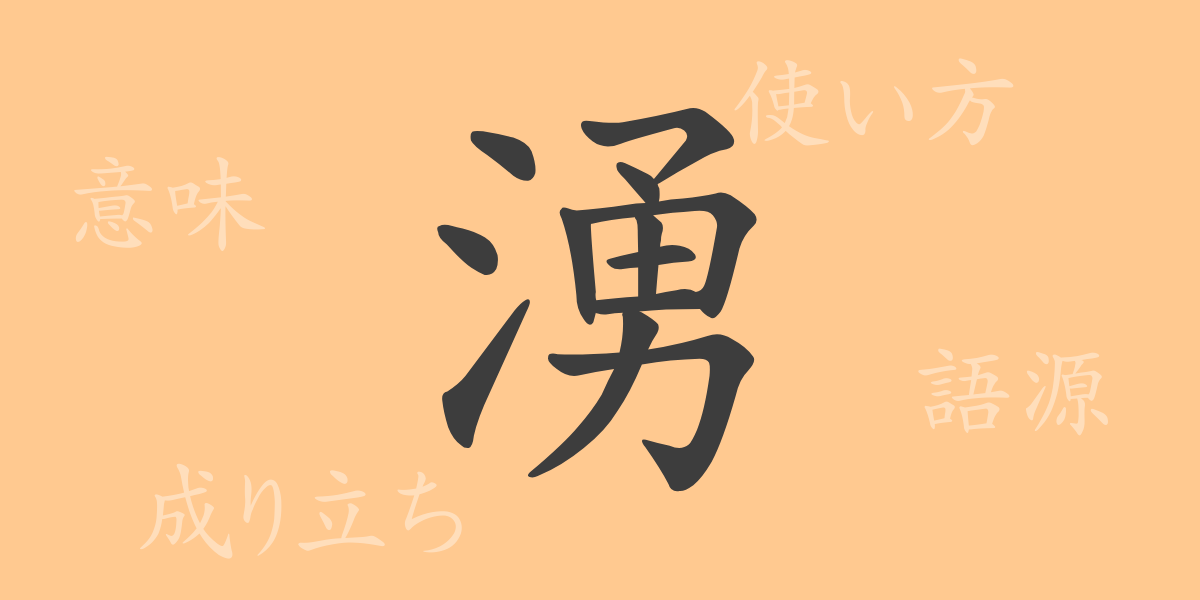The richness of the Japanese language is reflected in its characters. Each kanji (かんじ) carries deep meanings and history, serving as a key to understanding Japanese culture and the origins of its language. This time, we focus on the commonly used kanji “湧 (ゆう)” and delve into its etymology, modern usage, related idioms, and proverbs to explore the world of this character in depth.
The Origin (語源) of 湧 (ゆう)
The kanji “湧 (ゆう)” represents the natural emergence of water from the ground. Its shape has long symbolized the movement of water. The character is composed of “氵 (さんずい)”, which signifies water, and “甬 (よう)”, which indicates sound, creating a form that evokes the breath of nature.
The Meaning and Usage of 湧 (ゆう)
The primary meaning of “湧 (ゆう)” is “water or other substances naturally emerging from the ground.” It also extends to signify “emotions or feelings naturally welling up.” For example, “湧水 (ゆうすい)” refers to naturally emerging water, and “情熱が湧く (じょうねつがわく)” describes the natural rise of passion.
The Reading, Stroke Count, and Radical of 湧 (ゆう)
The kanji “湧 (ゆう)” has several readings, varying with its usage.
- Readings: On’yomi (おんよみ) “ユウ (ゆう)”, Kun’yomi (くんよみ) “わく (waku)”, “わかす (wakasu)”
- Stroke count: 12 strokes
- Radical: 氵 (さんずい)
Idioms, Phrases, and Proverbs Using 湧 (ゆう) and Their Meanings
Here are some idioms, phrases, and proverbs that include “湧 (ゆう)”:
- 湧水 (ゆうすい): Water that naturally emerges from the ground.
- 湧出 (ゆうしゅつ): The emergence of water or oil from the ground.
- 湧泉 (ゆうせん): A spring where water emerges.
- 湧き上がる (わきあがる): Emotions naturally rising from within.
- 湧き出る (わきでる): Water emerging from the ground; also, the sudden occurrence of something.
These idioms and phrases are often used to describe natural phenomena and human emotional movements.
Summary of 湧 (ゆう)
The kanji “湧 (ゆう)” symbolizes the strength of nature and the natural flow of human emotions. Its diverse usage teaches us about the richness of Japanese expressions and evokes a sense of respect for nature that underlies the language. By using this frequently encountered kanji in daily life, we can rediscover the depth of words and the culture that supports them.

























